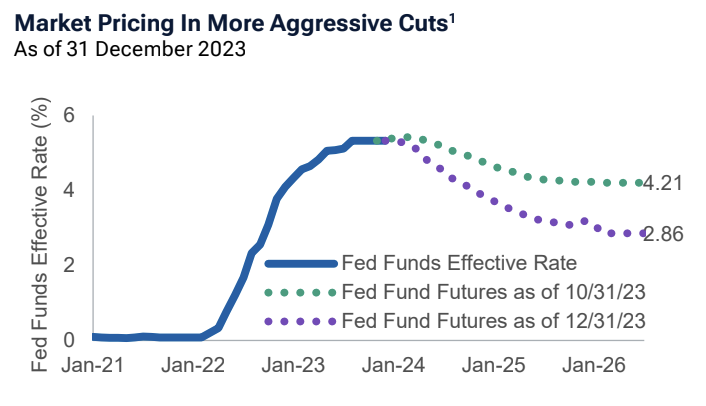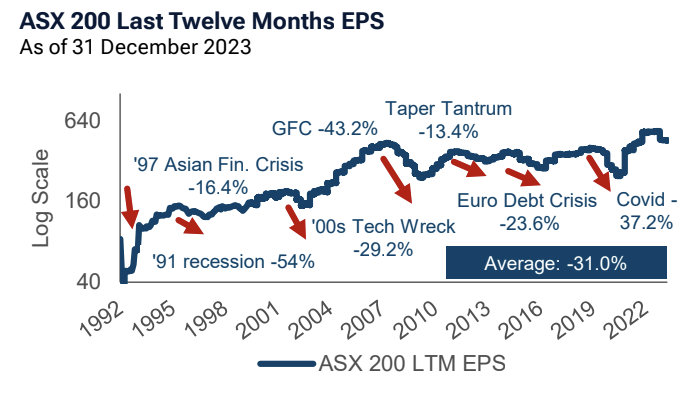Why we are now underweight Australian stocks
While not taking a victory lap, Powell acknowledged that their aggressive policies were indeed having the intended impact of helping rein in inflation, even as the market and the Fed was surprised while they have as yet had little impact on employment. With the markets celebrating the “soft landing,” they quickly priced in six rate cuts, double what the Fed has laid out.
Given the wide divergence in views, every data point ahead is likely to drive volatility. With US economic growth having proved so resilient and the consumer and unemployment still far from broken, upside surprises to growth or inflation could have markets running back their rate cut views.

Earnings revisions have further to go
But with most regions expecting slower growth in 2024, they may be close to the top of their range. Turning to the earnings outlook, consensus forecasts for 2024 are for a decline of 5% to 10%. In our view, earnings risks are skewed to the downside.
Resilience in economic activity and employment supported equities in 2023 but has created the risk of a nastier downturn in 2024 by forcing central banks to disappoint market expectations of interest rate cuts. We continue to maintain a defensive posture as we expect the more cyclical parts of the Australian share market to come under greater earnings pressure in 2024. This should see quality, defensive and growth companies benefit as their earnings could prove more resilient.

Other cross-asset views
We maintain a balanced view on equities supported by positive earnings trends and loosening financial conditions, against a backdrop of softening growth and elevated valuations.
We have initiated an underweight position in Australian equities relative to global stocks due to earning disappointment risks, elevated valuation after the late 2023 rally and headwind from a stronger Australian Dollar. We remain overweight areas of the market with superior fundamentals, such as Japan and Growth stocks.
Within fixed income, we remain modestly overweight cash relative to bonds. Cash continues to provide attractive yields and liquidity to take advantage of potential market dislocations.
We added to U.S. TIPS on more attractive valuations and as a hedge against inflation, in a reversal of recent favourable trends. We also keep an overweight to REITS due to upside surprises to inflation.
We remain overweight high-yield and emerging market bonds on still attractive absolute yield levels and reasonably supportive fundamentals.
Invest with confidence
T. Rowe Price focuses on delivering investment management excellence that investors can rely on—now and over the long term.

